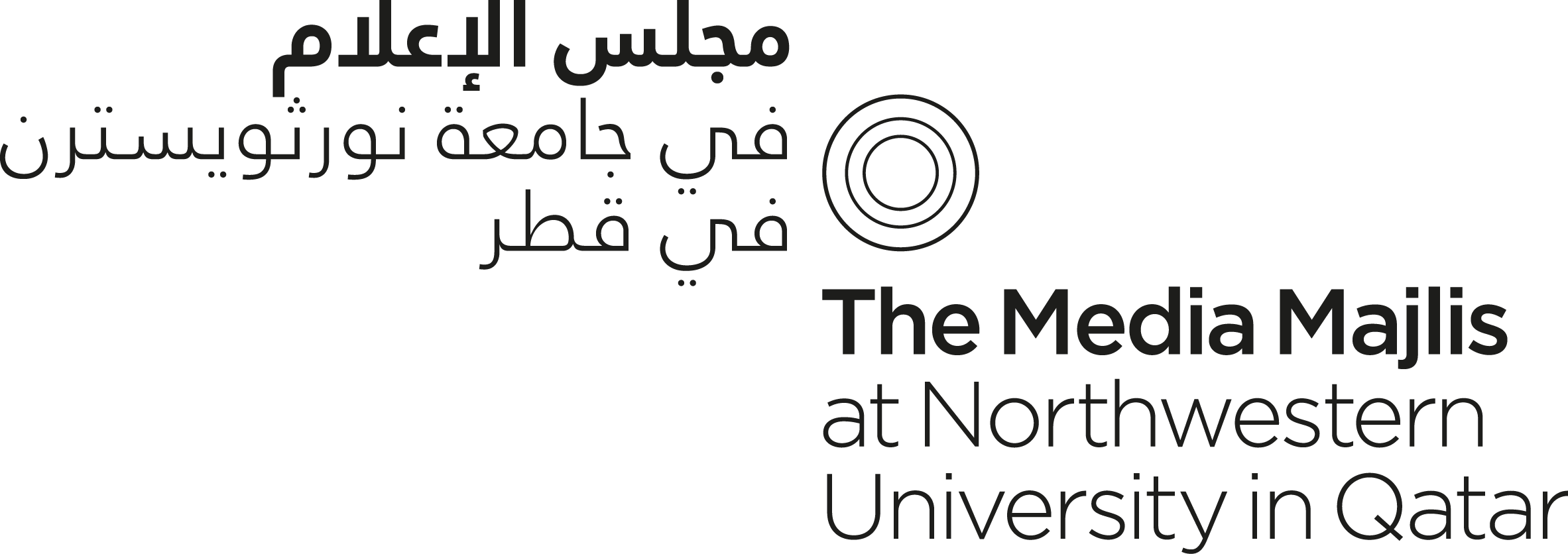
Women have had an undeniable influence on the television industry from its start. This discussion takes a closer look at drama and musalsalat with those inside and outside of the industry to examine the roles women play and the possible futures of musalsalat.
Join in the discussion with critics, writers and scholars on the roles of women in front of the camera and behind the scenes.
See ‘Program credits’ below for list of speakers and their bios.
-
Venue accessibility
-
Simultaneous translation
Simultaneous translation (Arabic/English) is provided for all programs.
-
Wheelchair accessibility
The Projection Theatre is fully wheelchair accessible and features multiple wheelchair spaces with unobstructed views of the stage and screen.
-
Sign Language interpretation
Sign Language interpretation (ASL and ArSL) may be requested for talks, discussions, lectures and tours. Please contact the museum well in advance of the program to discuss this service. You are welcome to bring an interpreter with you—please let us know ahead of time and we will ensure that appropriate seating is reserved. A program ticket does not need to be purchased for an interpreter providing prior notification of their attendance at a specific program is provided to the museum.
-
Wifi
Free wifi access is available in the building. On your mobile device, with wifi switched on, select Guest-NUQ-Majlis from the available services and accept the terms of service to connect.
-
-
Program credits
Christa Salamandra
Christa Salamandra is professor of anthropology at Lehman College and director of the MA program in Middle Eastern Studies at the Graduate Center, City University of New York. Her work explores visual, mediated, and urban culture in Syria and the Middle East. She is the author of A New Old Damascus: Authenticity and Distinction in Urban Syria (Indiana University Press, 2004), co-editor of Syria from Reform to Revolt (Syracuse University Press, 2015), and co-editor of Middle Eastern Drama: Politics, Aesthetics, Practices (Routledge, 2023). She is a contributing curator of the exhibition The World is Watching Musalsalat and contributed an essay and two interviews to the exhibition’s accompanying publication.
Lina Matta
Lina Matta is the director of Shahid AVOD, and MBC channels 2, 4, Max, and Variety where she coordinates the vision and programming strategy of the platforms. Prior to MBC, she re-launched Dubai One, an English language television channel in the UAE. She is the founder and curator of ANA Contemporary Arab Cinema, an annual film series celebrating the best Arab directors working today. She is also the co-founder of New York based Brown Hats Productions. Lina holds an MA in film from Boston University.
Khawla Almarri
Khawla Almarri is a historical and cultural researcher based in Qatar with a doctorate in education. Her academic interests include the history of the Arabian Gulf and its cultural heritage and identity. She has written on the cultural sociology of collecting, focusing on the stories of Qatari collectors, and is the founder of Eduqate. She is the author of Heroes and Villains: A Conversation Between Evil and Good in the Middle East (2019) featured in the exhibition The World is Watching Musalsalat, and Interview with a Collector: A Closer Look at Qatari Collectors and Their Stories (2021) in cooperation with the Mal Lawal exhibition organized by the National Museum of Qatar.
Arzu Öztürkmen
Arzu Öztürkmen is a professor of performance studies and oral history at Bogaziçi University in Istanbul. Her research areas include folklore studies, memory and genre in Turkish television drama, and historical ethnography in the Black Sea and Eastern Mediterranean. In addition to several articles on the cultural history of Turkey, she is co-editor of Celebration, Entertainment and Theater in the Ottoman World (Seagull Books, 2014) and author of The Delight of Turkish Dizi: Memory, Genre and Politics of Television in Turkey (Seagull Books, 2022), the fist extensive study of Turkish television dizi shows. She contributed an essay on dizis to the exhibition publication accompanying The World is Watching Musalsalat.
